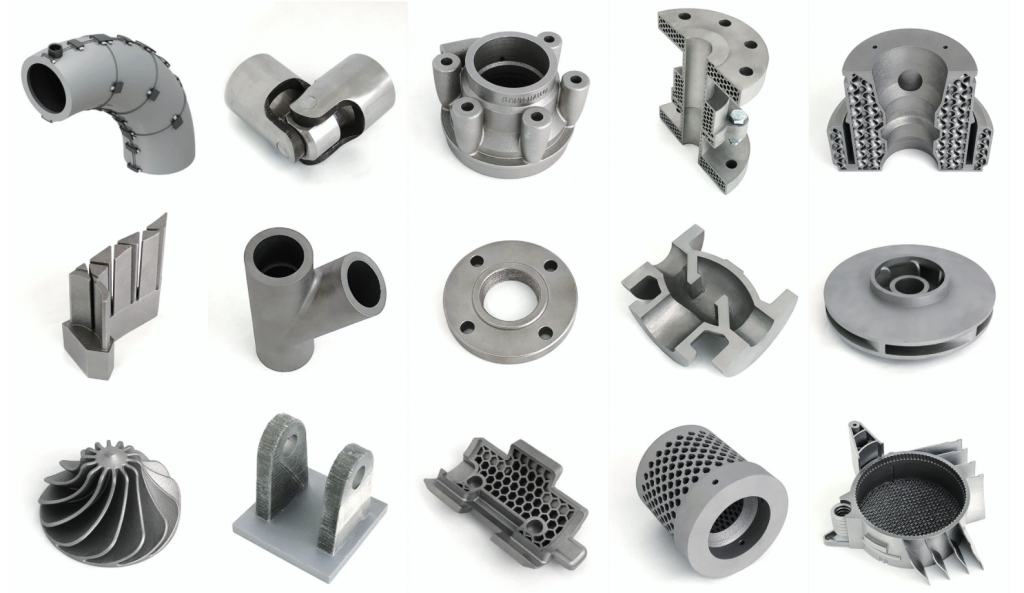The steps that make Aluminum Casting highly reliable and precise
Wiki Article
Finest Practices for Maintenance and Applications in the Aluminum Shop Field: A Thorough Overview
Preserving devices in the aluminum factory field is essential for functional success. Regular assessments and anticipating maintenance can substantially lower downtime and improve safety. Advanced innovations, such as IoT and information analytics, play a critical duty in this procedure. Recognizing the complete extent of finest methods needs a closer exam of certain approaches and their effects on efficiency. What are the crucial components that add to a reputable maintenance framework?Significance of Regular Upkeep in Aluminum Foundries
Routine upkeep plays an essential function in the efficient operation of aluminum factories. By systematically checking and servicing equipment, shops ensure peak performance and longevity of equipment. Regular upkeep tasks, such as cleaning, part, and lubrication replacement, assistance protect against unanticipated break downs that can lead to expensive downtime.Regular checks improve workplace safety by recognizing possible hazards before they escalate into serious issues. Equipment that is properly maintained operates better, bring about enhanced item high quality and decreased waste. Furthermore, adherence to a structured upkeep schedule can sustain conformity with sector regulations, thereby cultivating a credibility for dependability and top quality within the marketplace.
Applying Predictive Maintenance Strategies
Anticipating maintenance approaches take the principles of routine maintenance an action better by leveraging data analytics and advanced monitoring technologies. In light weight aluminum foundries, these approaches make it possible for operators to prepare for tools failures before they occur, thereby minimizing unplanned downtimes and maximizing functional efficiency. By utilizing sensing units and IoT tools, real-time data can be collected on maker performance, permitting the recognition of possible problems via predictive analytics.Optimizing Melting and Pouring Procedures
Reliable melting and pouring processes are vital for maximizing performance and assuring the high quality of light weight aluminum spreadings. To improve these procedures, shops ought to concentrate on specific temperature control during melting, as this straight affects the metallurgical homes of the alloy. Utilizing innovative melting technologies, such as induction and resistance melting, can improve power effectiveness and minimize cycle times.Carrying out automated pouring systems minimizes human error and keeps uniformity in the putting procedure. Correct mold and mildew preparation, consisting of adequate preheating, is important to protect against thermal shock and enhance mold durability.

Enhancing Safety And Security Methods in Factory Procedures
Focusing on security in light weight aluminum factory operations is crucial for securing employees and guaranteeing an effective atmosphere. Reliable safety and security methods include regular training sessions that emphasize the importance of individual protective devices (PPE), such as safety glasses, gloves, and headgears. Additionally, the establishment of clear emergency situation procedures is necessary in managing possible accidents.Normal assessments of tools and machinery help identify dangers before they rise right into serious concerns. Applying a robust reporting system urges employees to communicate safety worries without concern of consequence. Furthermore, fostering a culture of security warranties that every employee understands their duty in preserving a safe and secure work environment.
Furthermore, guaranteeing appropriate air flow and tracking air top quality can mitigate exposure to hazardous fumes and dirt. By reinforcing these methods, light weight aluminum shops can significantly decrease the danger of mishaps and create a setting where staff members feel valued and secure, inevitably enhancing general functional efficiency.
Leveraging Modern Technology for Improved Performance
Making use of advanced innovation has actually become increasingly essential for light weight aluminum foundries aiming to boost functional effectiveness. Automation and robotics play an essential role in improving manufacturing procedures, reducing labor costs, and decreasing human mistake. Implementing real-time surveillance systems permits the continual assessment of tools performance, allowing aggressive upkeep and reducing downtime.
Additionally, the assimilation of data analytics offers important understandings right into functional workflows, promoting far better decision-making and source allowance. As an example, anticipating analytics can recognize possible failures before they take place, additional enhancing maintenance routines.
In addition, taking on advanced melting and casting technologies enhances power effectiveness and material yield, which are basic for sustainability in the sector. By welcoming these technological innovations, light weight aluminum shops can not only increase productivity but also keep an affordable edge in an increasingly demanding market (aluminum foundry). Inevitably, leveraging modern technology is pivotal in driving technology and boosting total operational effectiveness within the sector

Regularly Asked Inquiries
What Prevail Indications of Equipment Wear in Aluminum Foundries?
Usual indicators of equipment wear in light weight aluminum foundries include unusual noises, reduced efficiency, boosted vibration, overheating elements, leakages, and noticeable deterioration. These signs often signal the need for maintenance or possible replacement to stay clear of pricey downtime.Exactly How Can I Train Personnel for Effective Upkeep Practices?
To train staff for efficient upkeep techniques, one can apply hands-on workshops, establish comprehensive guidebooks, encourage mentorship programs, and conduct routine analyses to evaluate abilities and knowledge, making sure all staff members understand maintenance procedures extensively.What Are the Environmental Laws for Light Weight Aluminum Foundries?
Aluminum factories undergo numerous environmental regulations, including emissions control, waste administration, and resource preservation. Conformity warranties marginal ecological effect, advertising sustainability while adhering to neighborhood, nationwide, and global environmental criteria and laws.How Do Factories Handle Waste and Recycling of Light weight aluminum?
Foundries handle waste and recycling by implementing systems for collecting scrap light weight aluminum, using sophisticated separation technologies, and working together with recycling centers to guarantee effective recuperation processes, therefore lessening environmental effect and promoting sustainability within the sector.What Are the Costs Connected With Implementing Advanced Technologies?
Carrying out innovative modern technologies in shops incurs substantial expenses, consisting of first investment, training, and maintenance expenditures. The lasting benefits, such as boosted effectiveness and minimized waste, frequently warrant these expenditures, leading to improved profitability. (Aluminum Casting)
Report this wiki page